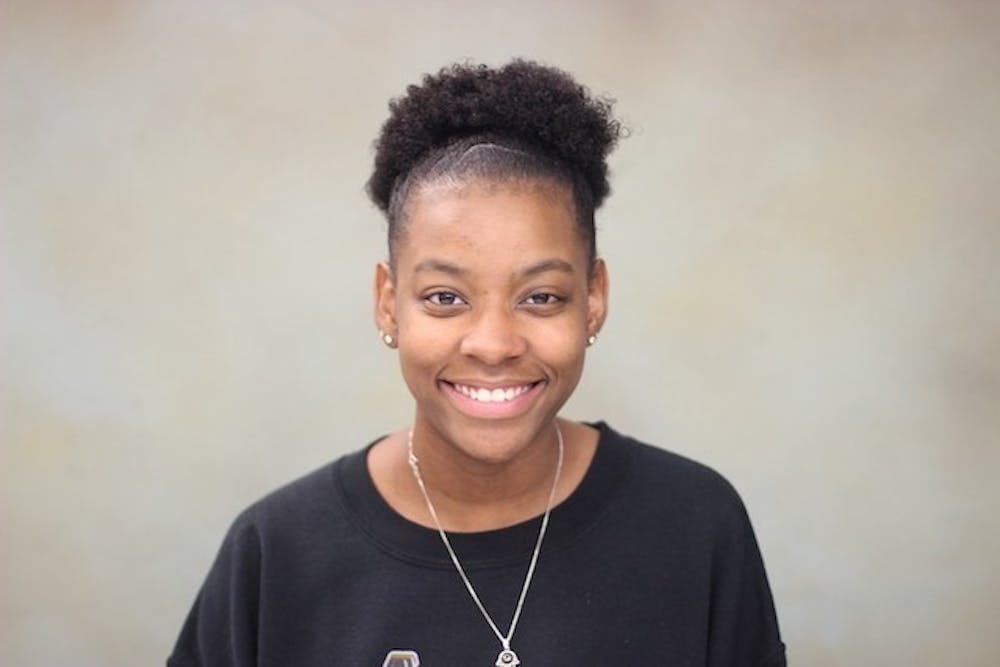COLUMN: Responding to Kamala Harris's vice-presidential nomination
This summer media coverage of the Black Lives Matter movement shook the United States to its core. Coverage of the protests, and riots, prompted hundred of thousands of people worldwide to take to the streets to demand justice and have their voices heard, myself included.
On Aug. 11, presumptive Democratic Presidential nominee Joe Biden selected Kamala Harris as his choice for Vice President. Biden's decision makes Harris the first African American and South Asian American woman to be selected as a vice-presidential nominee on a major party ticket. Harris is the third woman to be selected for the nomination after Geraldine Ferraro and Sarah Palin.
The decision comes as surprise. Harris was the safest option out of Biden's rumored final choices: Sen. Elizabeth Warren of Massachusetts, Michigan Gov. Gretchen Whitmer and Susan E. Rice being the others.
With the tone of the past eight months ringing ever so loudly in our ears, it was pretty easy for me to drown out the noise of the announcement. As a Black woman, finding out Harris was selected did not give me immediate gratification or satisfaction. It still hasn't.
In 2004, Harris became the state of California's first district attorney of color, pledging to never seek the death penalty and to prosecute three-strike offenders only in cases of violent felonies. While district attorney, Harris started a program giving first-time drug offenders the chance to earn a high school diploma and find employment. Harris also inherited a 50 percent conviction rate from former San Francisco District Attorney Terence Hallinan. During her first three years, that rate jumped up to 67 percent.
With an increase like that in a matter of few years, how will the dynamic duo of Biden and Harris handle prosecution rates across the country, especially since Biden pushed for the passing of the Violent Crime Control and Law Enforcement Act back in 1994? The act was the largest crime bill in history. It allocated $9.7 billion in funding for prisons and $6.1 billion in funding for prevention programs, which were designed by police officials.
In 2010, during Harris's term as district attorney, she backed an initiative that made truancy a misdemeanor and punished parents who did not send their children to school. Parents were charged up to $2,000 if a their child missed more than 10 percent of school without a valid excuse. Bills such as these do nothing but punish students by missing school and hit parents even harder with fines to pay.
Since 2017, Harris has made her way to the U.S. Senate floor where she has participated in numerous hearings and grilled Republicans such as Associate Supreme Court Justice Brett Kavanaugh and U.S. Attorney General Bill Barr. In 2017, when she went viral for questioning former U.S. Attorney General Jeff Sessions during the Russian investigation, Harris showed that true gritty attitude that is more than needed to hold public officials in America accountable.
Will she be able to play her cards right and use that gritty attitude to get America on the "right track?"
Harris has a strong background in prosecution and yet her stances on issues that affect communities of color fall flat. However, it seems like she's trying to carry this sign of a "progressive prosecutor" which may be a contradiction within itself.
I need Harris to back the policies that truly matter to me, like defunding police departments and reallocating funds to go toward failing public school districts. It will truly be a sight to see when Harris discusses progressive issues that plague the country like the failing infrastructure, student loan debt or even universal health care.
Harris has a chance to change the status quo as vice president. I hope she doesn't maintain it.







